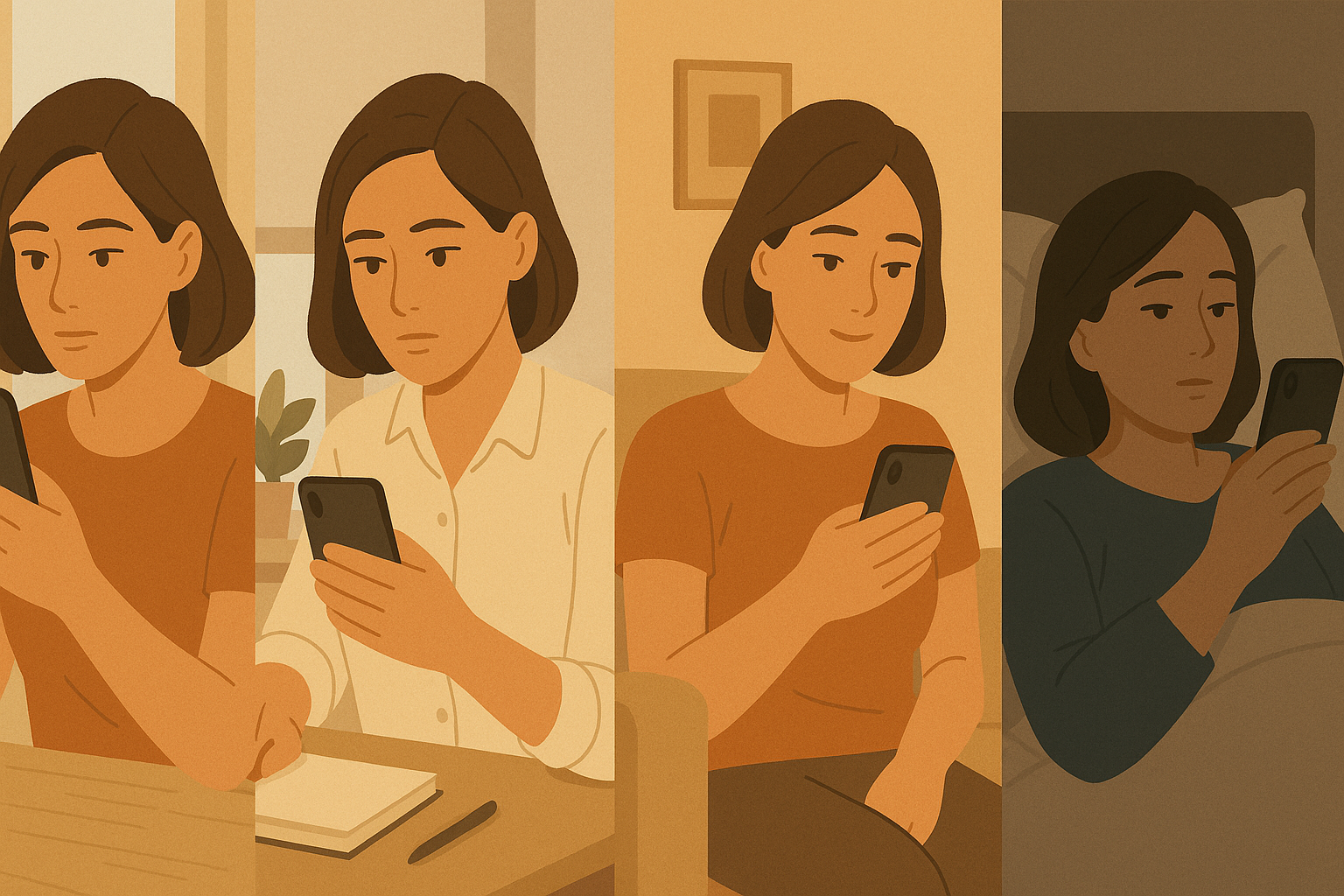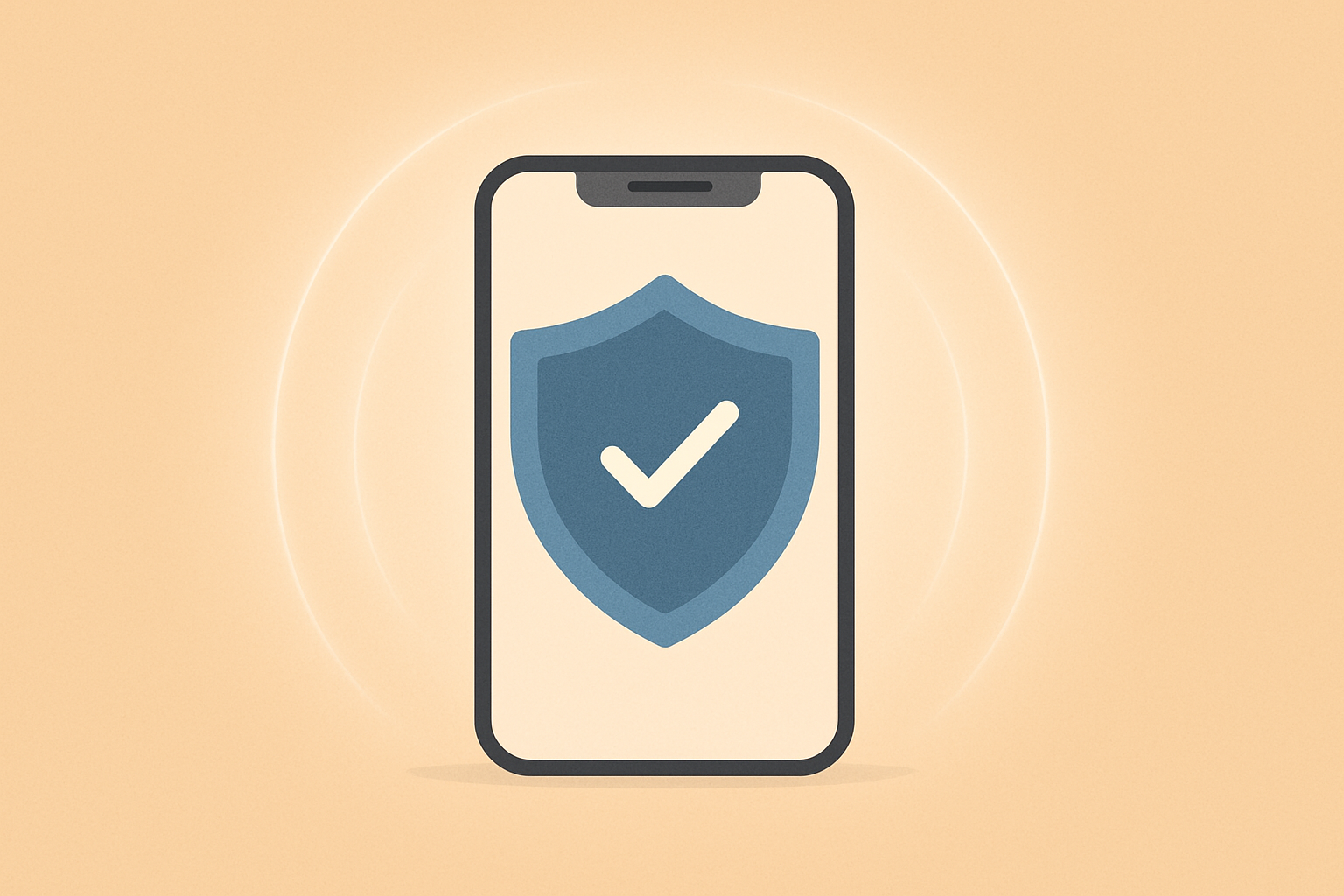How to Use AI Therapy as a Daily Mental Fitness Tool

Mental Health Needs Daily Reps Too
We all know the importance of brushing our teeth, stretching our muscles, or drinking enough water each day but what about taking care of our minds?
Mental fitness isn’t something you build once and forget. Just like physical health, it needs consistent effort. And while traditional therapy can be powerful, it’s not always daily, accessible, or affordable. That’s where AI therapy comes in.
Using AI-powered tools like Aitherapy, people around the world are building healthier habits, regulating their emotions, and finding relief, one short, judgment-free conversation at a time. Whether you're managing anxiety, stress, overthinking, or just trying to stay grounded, AI therapy can be your pocket-sized partner in emotional wellness.
In this article, we’ll explore how to use AI therapy as a daily mental fitness tool, backed by science, shaped by real-life examples, and designed to help you feel better every day.
What Is AI Therapy and How Does It Work?
AI therapy uses artificial intelligence to simulate helpful, supportive conversations based on techniques from modern psychology especially Cognitive Behavioral Therapy (CBT). Instead of booking weekly sessions or waiting for availability, users can chat with an AI therapist anytime, anywhere.
At Aitherapy, our AI isn’t just a generic chatbot. It’s trained using real therapeutic frameworks like CBT, emotional regulation strategies, and guidance from practicing therapists. That means it’s not just listening, it’s helping you identify thought patterns, challenge negative thinking, and develop healthier coping skills.
Think of it like this:
| Tool | Strength | Weakness |
|---|---|---|
| Journaling | Private and reflective | May not guide you through insights |
| Human Therapist | Personalized, deep expertise | Costly, limited access |
| AI Therapy | Always available, emotionally intelligent | Not suitable for crisis or deep trauma |
While AI therapy doesn’t replace human therapists, especially for complex mental health conditions, it acts as a daily companion that helps you stay mentally agile, emotionally regulated, and more self-aware.
7 Ways to Use AI Therapy in Your Daily Life
AI therapy isn't just for moments of crisis it's a tool you can use every day to build resilience, gain clarity, and feel more in control. Here are seven practical ways to make Aitherapy part of your daily mental fitness routine:
1. Morning Mindset Reset
Start your day with intention. A quick 3–5 minute check-in with Aitherapy can help you reduce anxious thoughts and set a grounded tone.
Prompt idea: “Help me start my day with less overthinking.”
2. Midday Stress Release
Had a frustrating meeting or a wave of overwhelm? Use AI therapy to process your reaction in the moment instead of carrying it with you.
Prompt idea: “I just had a hard conversation, help me regulate.”
3. Evening Unwind Routine
Your brain needs time to decompress. A calm, guided reflection with Aitherapy helps you let go of overthinking and reduce bedtime anxiety.
Prompt idea: “I keep replaying things I said today, how do I stop?”
4. Before Bed Sleep Prep
Stress and rest don’t mix. Use AI therapy to slow your thoughts, release tension, and prep your body for sleep.
Prompt idea: “Help me calm my mind before I go to bed.”
5. Crisis Interruption
In moments of panic or intense emotion, Aitherapy can help you pause, breathe, and ground yourself.
Prompt idea: “I feel overwhelmed and don’t know what to do.”
6. Journaling Alternative
Hate writing? AI therapy acts as a guided, interactive journal—no pen needed.
Prompt idea: “Can I just vent without judgment?”
7. Emotion Labeling & Pattern Tracking
Sometimes the hardest part is naming what you’re feeling. Aitherapy can help decode your emotions and track your patterns over time.
Prompt idea: “Why am I so irritable today?”

The Science Behind It: Why AI Therapy Works for Daily Mental Fitness
Can a conversation with AI really support mental health? Yes, especially when it’s consistent, emotionally intelligent, and grounded in evidence-based practices like Cognitive Behavioral Therapy (CBT).
Here’s what the research shows:
🧠 1. Emotion Labeling Reduces Intensity
Studies show that simply naming your emotions—“I feel overwhelmed,” “I feel angry”—activates the prefrontal cortex and reduces amygdala activity, calming the brain. Aitherapy helps you do this quickly and safely.
Source: Lieberman et al., 2007, UCLA study on affect labeling
🔄 2. Repetition Builds Emotional Regulation
Just like meditation or journaling, repetition strengthens your ability to pause, reflect, and reframe. AI therapy provides guided repetition that trains your brain to manage emotions more effectively over time.
Source: APA on emotion regulation
📈 3. Immediate Access = Higher Adherence
Traditional therapy is powerful—but only if you show up. Many people skip sessions due to cost, stigma, or scheduling. AI therapy removes all three barriers, helping users build a daily practice that sticks.
Source: WHO: Mental health and digital tools
AI doesn’t get tired, judge, or need an appointment. It simply meets you where you are and that level of accessibility is what makes daily use possible.
How People Are Using Aitherapy Every Day
Behind every message is a human being and at Aitherapy, our users have shown us just how powerful a few supportive words can be. Here’s what real people are saying about using Aitherapy as part of their daily mental fitness routine. You can find more in Aitherapy's Trustpilot page
One of the best AI therapy apps out there.
It’s so intuitive, sensitive, and affirming! It really gives helpful, detailed feedback and asks questions that help process whatever you’re going through. The responses are non-judgmental, compassionate, and affirming. Highly recommend.
— Tim, US
There for me at midnight, in a Lyft, even during family drama.
AI Therapy has been a game-changer for me, it was there when I needed it most. Whether it was during an emotional family gathering, in a restaurant, or when I doubted I could recover, it helped me navigate my emotions in the moment.
— Laura, US
It got me through when my therapist was on break.
I was struggling and Aitherapy helped me reflect and stay grounded. When I returned to therapy, I was more ready than ever. I recommend it to anyone who needs a supplemental support system.
— TT, US
A daily habit builder that actually works.
The daily message limit is excellent. It makes me engage more meaningfully, just like with a human therapist. I use it as part of my daily routine now.
— Kartick, IN
I talk through things as they happen instead of waiting weeks.
Aitherapy makes it easy to talk about things the moment they come up. It’s nice to have a place to vent and process in real-time.
— Ariana, US
Helped me when I couldn’t find anyone else.
I couldn’t afford other therapy platforms and none of the local therapists called me back. I found Aitherapy by Googling ‘Can AI be my therapist?’ and I’ve been using it ever since. It drastically improved my life and mental health. Best part? It’s always there.
— Elicia, US
Nighttime support when no one else is available.
I’m recovering from an accident and often can’t sleep due to pain. Those nights are tough… but having Aitherapy to talk to at 3am has made a real difference in my healing journey. I’ve gotten more value here than any in-person or online therapist I’ve tried before.
— StarSeed, ZA
Really helpful and finally affordable.
I can’t always make time for therapy. Aitherapy has been a huge help, and the price is so reasonable for what you get. It’s guided me through a lot of mental blocks and always gives me clarity.
— Mesut, US
Empathetic, healing, and trauma-aware.
It acknowledges my emotions and gives thoughtful suggestions. The way it helps me process trauma and complex feelings is surprisingly effective. I feel more seen than I expected from AI.
— Violet, IN
Judgment-free, and just the right kind of support.
The responses are timely and appropriate without being too much. I feel like I can open up more in this format than I ever could with people.
— Thomas, US
These are people healing in motion, using Aitherapy as a safe, responsive space to reset, reflect, and grow every day.
How to Build Your AI Therapy Routine
Just like meditation or brushing your teeth, mental fitness becomes most effective when it’s part of your daily rhythm. But building a new habit can feel daunting—especially when you’re already overwhelmed.
Here’s how to make using Aitherapy as effortless and rewarding as your morning coffee:
1. Stack It with an Existing Habit
The easiest way to build a new habit is to pair it with something you already do.
✅ After I brush my teeth, I’ll open Aitherapy for 3 minutes.
✅ After I make coffee, I’ll check in with how I’m feeling.
2. Set a Gentle Reminder
Use Aitherapy’s built-in push notifications (or your phone’s calendar) to get a gentle nudge at a time that works for you.
Make it feel like an invitation, not a demand.
3. Start Small, Stay Consistent
Even one message a day builds momentum. You don’t need a 20-minute conversation.
Start with:
“I don’t know how I feel today.”
or
“Can you help me check in with myself?”
4. Create a Safe, Cozy Ritual
Light a candle. Sip some tea. Open the app in bed.
Making the check-in feel warm and familiar increases the likelihood you’ll keep doing it.
5. Celebrate the Wins
Notice how you feel after a 3-minute conversation.
Feel a bit more grounded? A bit more self-aware?
That’s the point. Celebrate it. Write it down. Let that feedback loop reinforce the habit.
Is It Safe? Privacy, Boundaries & When to See a Human
We get it, talking about your mental health is deeply personal. That’s why safety, privacy, and responsible usage are built into Aitherapy from day one.
Let’s walk through what you should know:
1. Is Aitherapy private?
Yes. Aitherapy is HIPAA-aligned and follows best practices for data security. Your conversations are encrypted and never used for advertising or sold to third parties. You’re in control—and your emotional safety is our top priority.

2. Are there boundaries?
Definitely. Aitherapy is designed for daily emotional support, not clinical diagnosis or emergency care.
It’s here to help you with:
But if you’re in crisis, experiencing suicidal thoughts, or need professional intervention, Aitherapy will encourage you to reach out to a licensed human therapist or hotline.
3. When should I talk to a real therapist?
You should always consider seeing a licensed therapist if:
- You’re dealing with complex trauma, addiction, or severe depression
- You’re having thoughts of self-harm or suicide
Aitherapy works beautifully as a complement, not a replacement, for deeper therapeutic work.
The Future of Mental Fitness Is Hybrid
Mental health support isn’t one-size-fits-all—and it’s not a choice between AI or humans. The future is hybrid: flexible, supportive, and designed to meet you where you are.
AI for Everyday Check-Ins
AI therapy like Aitherapy is perfect for daily emotional hygiene.
It helps you:
- Build self-awareness
- Manage stress before it spikes
- Reflect on your patterns in real time
- Feel supported when no one else is around
You don’t need to wait for a 50-minute session to take care of your mental health.
Humans for Deeper Work
Licensed therapists offer depth, accountability, and personalized insights, especially for trauma, diagnosis, or relationship work. AI isn’t trying to replace that. It’s here to fill the gap, not remove the foundation.
Together, They Make Mental Health More Accessible
Most people don’t get regular therapy because it’s expensive, hard to find, or comes with stigma. But with tools like Aitherapy, support becomes available to everyone 24/7.
Whether you're seeing a therapist weekly or managing life solo, you deserve something that helps you feel better today, not “next Thursday at 3pm.”
Ready to Start? Here’s What to Do Now
You don’t need a huge plan. You don’t need to “fix” yourself. You just need one simple step: Start a conversation.
Whether you’re feeling anxious, overwhelmed, restless, or just want to check in with yourself, Aitherapy is here, any time, anywhere, no appointment needed.
How to Get Started with Aitherapy
- Visit Aitherapy or download the app (iOS/Android)
- Send your first message something as simple as:
“I’m not sure how I’m feeling today.” - Build your routine, use it in the morning, on a walk, or before bed
- Come back when you need support daily or on tough days
What You’ll Get:
✅ 20 free messages per day
✅ CBT-based emotional support
✅ Privacy and safety built in
✅ Available 24/7
✅ No judgment, just clarity and care
Let this be your first rep of daily mental fitness.
You don’t have to do it alone and you don’t have to wait.
Try Aitherapy Now, Your First 20 Messages Are Free





